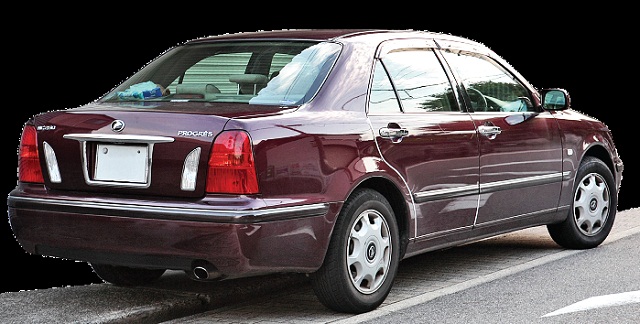
What went wrong with `poor man’s Benz’?
Kampala, Uganda | MOTORING GURU | When it hit the Ugandan market in the early 2010s, the Toyota Progrès was a hit. It received two main reviews; the first was that it was a “poor man’s Benz”, and the other was that it was a continuation of the Toyota tradition of low maintenance, low fuel consumption, and low cost. Many thought that finally something had been found that would knock the Toyota Premio of its pedestal on the local market.
Instead, the Progrès has since fallen very much out of favour. So what went wrong?
Partly it is an issue of (wrong) expectations. The Toyota Progrès was not a poor man’s Benz and was never intended to be one. So Ugandans made a fatal mistake of listing it among the large array of Toyota saloons in the league of the Corolla and Coronas. Part of the reason for this was the pricing of the progress, which only came as a used vehicle and, therefore faced very depressed prices. It was thought to be a cheap car.
In reality, the Japanese designed Toyota Progrès as a midsize luxury saloon. That is why they gave it a width and engine displacement that exceeded Japanese Government regulations concerning exterior dimensions and engine displacement, and classified it in the larger “passenger car” tax bracket. For the years when it was manufactured (1998-2007) is had the most luxurious amenities that Toyota could offer; dual zone air conditioning, six air bags, modern GPs system, fill wood and leather trim interior, and automatic headlights and wipers.
According to one review online, “the Progrès had an equipment specification that not only surpassed European saloons of similar exterior size, but could match much larger cars such as the BMW 5 series of the era and the Mercedes-Benz E Class”.
Its interior size was also generous, offering the best cubic feet of space in its class. It backed up the luxury with a sturdiness resulting from its double wishbone suspension at both the front and rear wheels.
On the performance front, the Toyota Progrès was accused of being a high fuel consumer. Here, it often missed that the Toyota Progrès has an inline 6-cylinder engine of either 2.5L (2494cc) or 3.0L (2954cc) with VVT-I in early models. Later models from 2001 onwards had direct injection (D4) engines 1JZ-FSE (2.5L) and 2JZ-FSE (3.0L). These are engines designed to take in more volumes of fuel and air in order to produce more power. Unfortunately, these are considerations many buyers rarely fit into the purchase decision. They only feature at the level of operation. When factored in, the Toyota Progrès consumes the same as or less fuel than similar 2000cc engines, especially if it has the VVTI and/or D4 technology.
This leads us to the final hurdle Toyota Progrès faced on the Ugandan market. As already seen, this was built as a luxury vehicle which, unfortunately, hit the Ugandan market as a low to mid-range purchase. So most people who bought this car either were not aware of its maintenance requirements or simply ignored them. For example, the Toyota Progrès arrived at a time when motor vehicle computer diagnostics was in infancy. So many owners resorted to roadside mechanics; with disastrous outcomes, which spelled a bad ending to the popularity tale of a rather great car.
 The Independent Uganda: You get the Truth we Pay the Price
The Independent Uganda: You get the Truth we Pay the Price




in Afghanistan, you can find this Toyota progress for 400$ if you say why?
Progres came to Afghanistan in 2015 people thought that its an lx and good to use later on people found that it’s useless and all its parts are very expensive and you can find its parts, yesterday friend of mine came to me with this car I rejected it after trying inside the city I rejected even to 250$
here you can buy a Passo car for 70000 afn or 700$ or a mark x for 1200$ and a binz for 1500$
we still use axo fielder which is about 2500$ it’s cheap and good and its parts are cheap too.